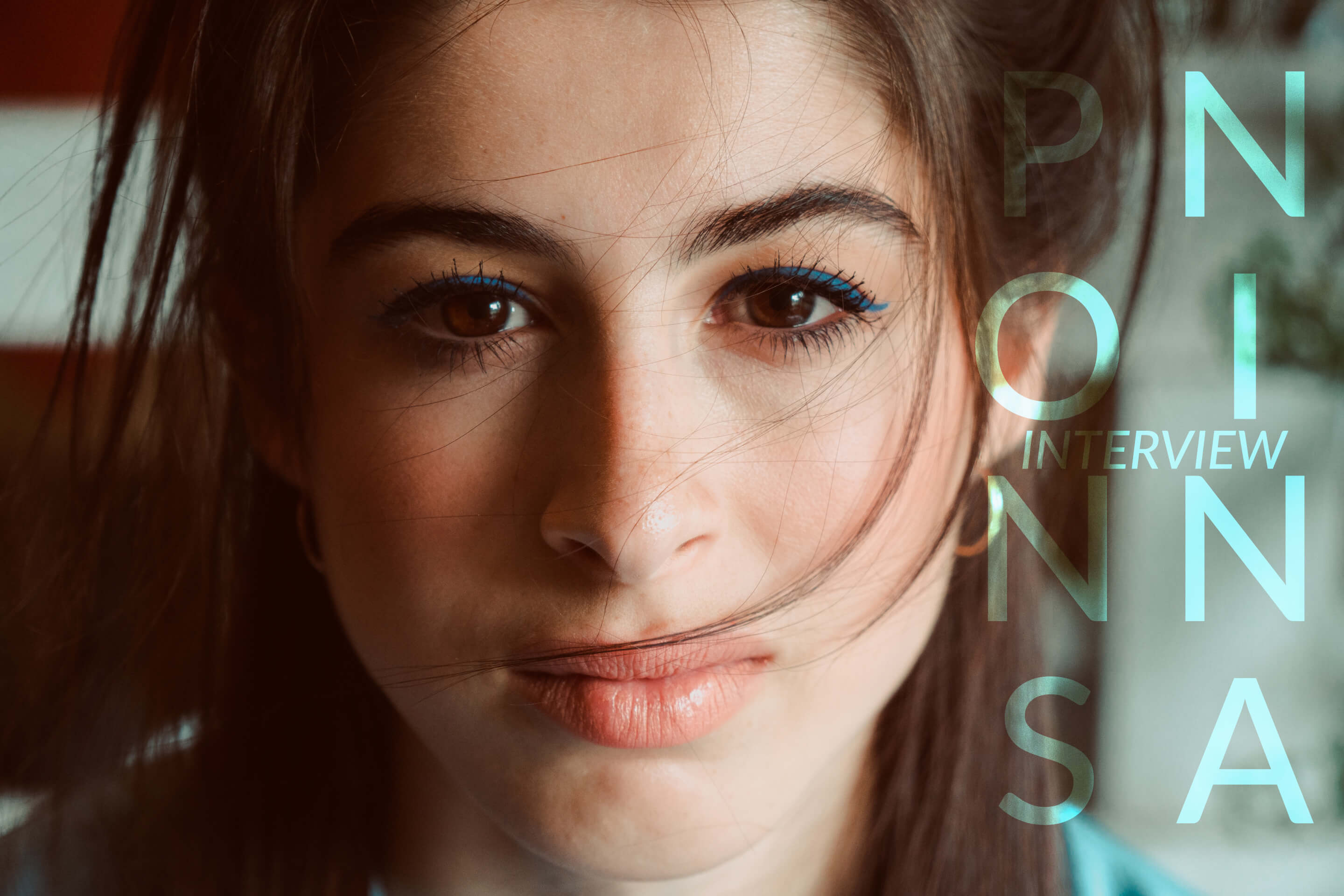When you meet Nina Pons, after seeing her in “Baby ” and “Bangla,” you immediately find yourself conquered by her energy and her desire to have fun, which is always present, even if she has only two hours of sleep from the night before. She proposes shots while eating a sandwich, she surprises you with her answers and she laughs a lot, like when on stage she can’t act anymore for laughing too much.
During an afternoon together, we discovered the determination, with which she faced the auditions for “Baby,” the friendships found and established on the set of “Bangla,” her skills in “stealing” moments from life to repropose them in a realistic way while acting, her great passion for the theatre (she played Lucia in “I Promessi Sposi alla prova”) and some of the movies that should be seen over and over, especially if you want to work in theatre.
But, above all, she told us about acting techniques, to be able to rise up after every “no” knowing that a “yes” will come sooner or later to change your life, to know yourself both in front of the camera and behind the scenes and not to judge. In other words, she talked about the play of life that goes on stage every day, where we are the only protagonists, with all our shades and strengths.
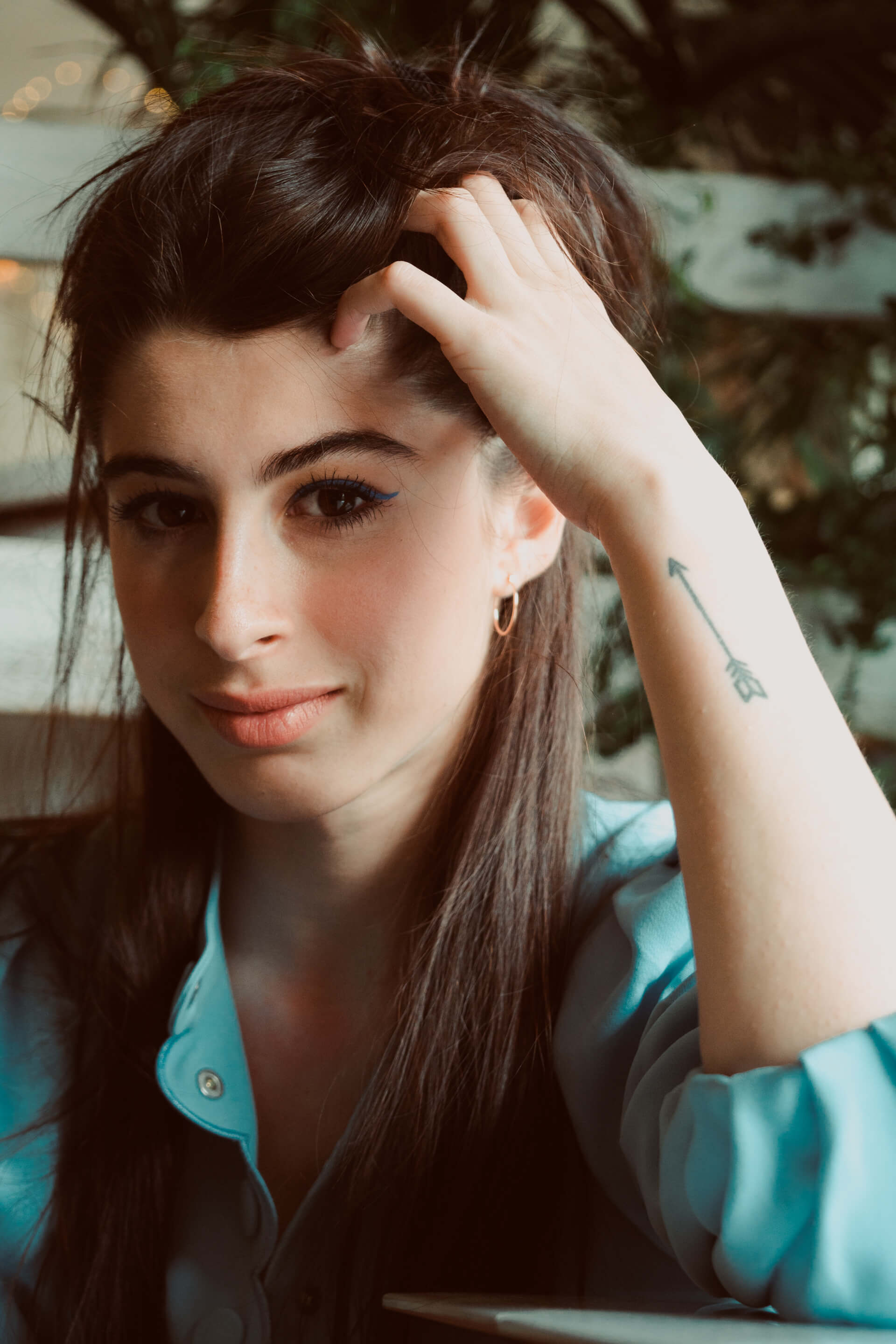
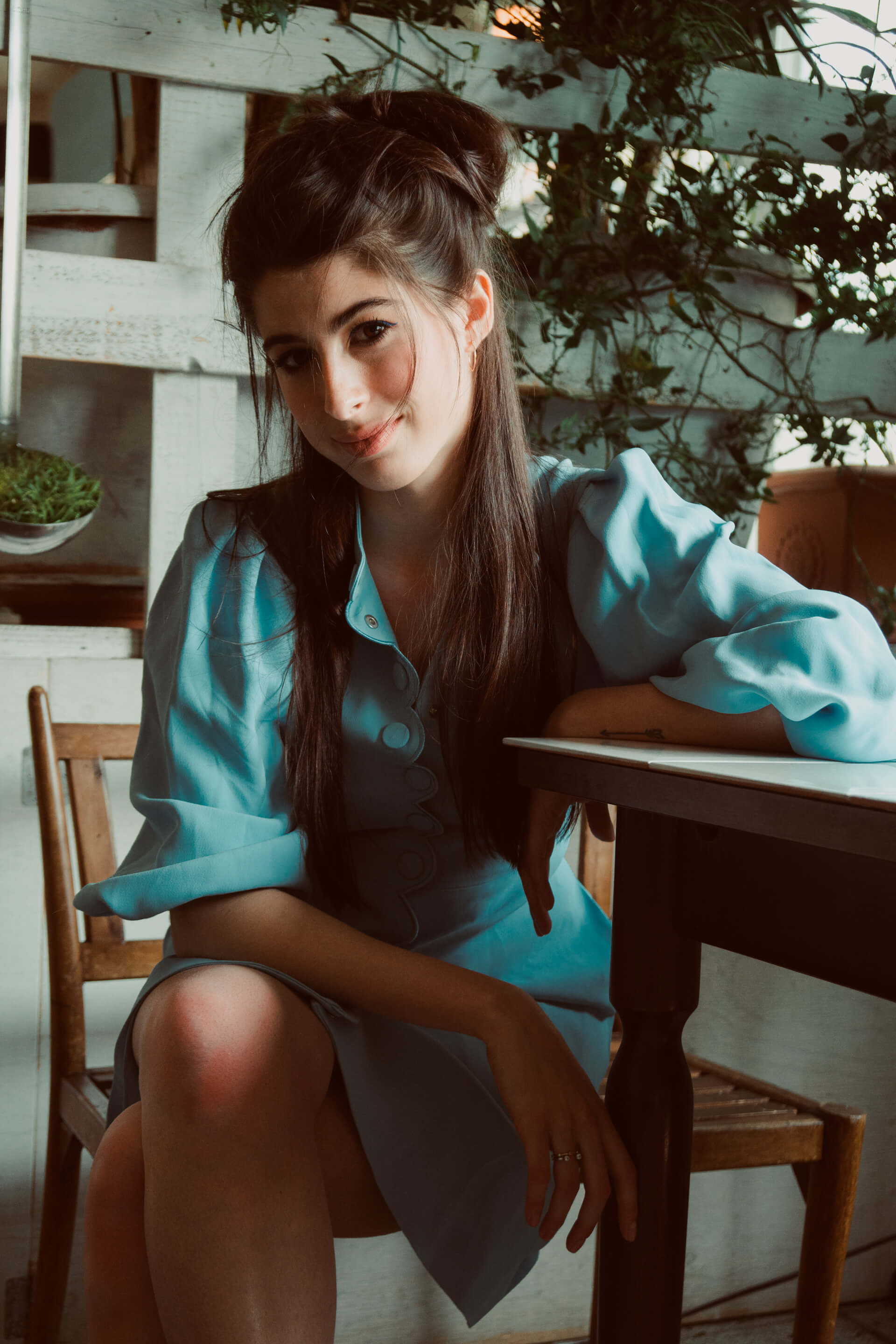
What was your reaction when you discovered you’d got the part in “Baby”?
__________
I cried. I’ve always wanted to do this job since I was a child, I began by doing so many auditions that I was not able to pass: there is a whole way to audition, besides being good you have to be present when you do it. In the beginning, I was young, shy, and ashamed. I was anxious. When there was the “Baby” audition, I thought: “Ok, whatever I have to do in this series, I want a part, even a small one.” So I went to the audition determined: it was one of the most beautiful auditions I have done so far because they were based on improvisation, which is rare.
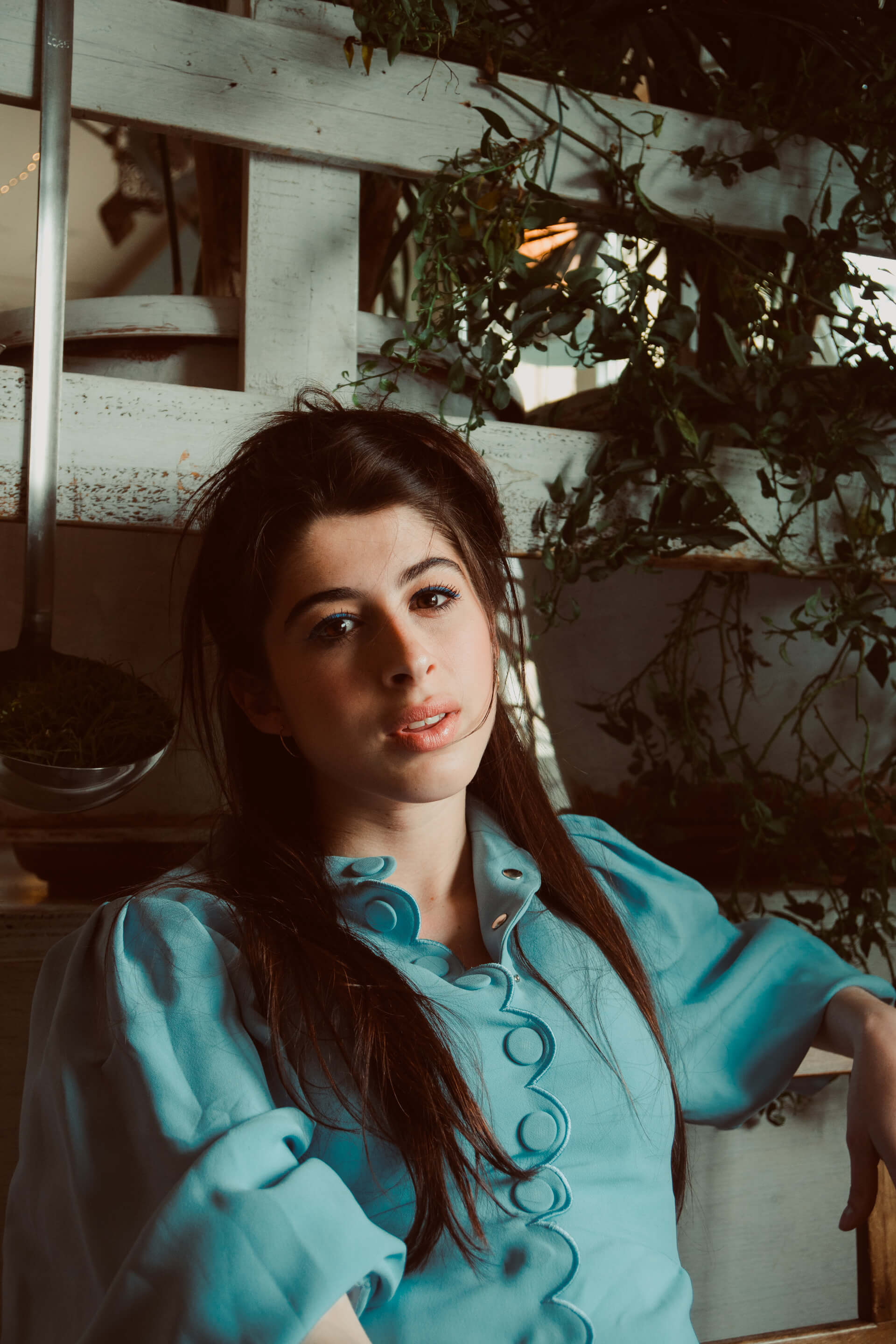
The casting director gave me some topics and we played with that, it was fun. When I got the call, I remember I was at the Teatro Golden of Rome (seat of the training course for Golden actors), precisely under a light, as we were testing lights. On the phone, my agent told me I got the part so I started screaming, and they all figured it out. I started to cry because, after so many auditions, you say, “Fuck, I’ve finally reached a small goal.” In the evening, we had to perform on stage a choreography inspired by “All that Jazz” from “Chicago,” so I had to be very sensual and, instead, I was dancing happily with a big smile on my face, I could not focus on anything else.
The hard thing about this job is that you have to be very patient and that you can never give up, even if there are more “nays” than “yes” at the beginning.
How did you prepare for the role and what should we expect from your character in the second season?
__________
Since I had never worked on a set before, first I called my coach, Gisella Burinato, who said to me, “Print all the episodes and come over, even if it is not a big role we will read the screenplay and understand how to deal with it.” So I went to her house, and we started to read the screenplay, then you make yourself an idea based on the people you saw. I was born in the neighborhood where they filmed “Baby” so this Flaminia 1, the girl I play, is a typical girl of the wealthy Rome, a kind of person I saw and that, maybe, I was, too. In my opinion, one of the fundamental things is to steal, to look around: if you see a person who limps look at them because maybe one day you will have to limp on stage.
Did you expect the worldwide success of “Baby”?
__________
It’s a very strong topic, I certainly saw these girls around, it was a well-known story, so I was sure it would have a resonance, but I did not expect that much. Young people can see themselves portrayed on screen because it is a true story: it is not fictional or superficial. The beautiful thing about this series is the mother-daughter relationship that makes you understand so many things, such as how much parents are wrong and pushy with their children, it is the aspect of the series that involved me the most.
“In my opinion, one of the fundamental things is to steal, to look around: if you see a person who limps look at them, because maybe one day you will have to limp on stage, too.”


Let’s talk about “Bangla”: what message would you like to be shared with the public, and how was the mood on set?
__________
It was an unexpected project for me. One day, while I was at the hairdresser, my agent called me, and she said, “Nina, what do you do on early August?” and I answered, “Well I’ve arranged a trip with my girlfriends.” And she says, “I just got a call from that casting, they told me that they’re taking the auditions you made for Baby to Fandango because they’re looking for someone for this role.” It was a huge thrill. I thought: “Damn, do you see how far the auditions for Baby have taken me? Even if it was a small part, it led me to another job.” The next day I found myself on this set, which was very different from the set of “Baby:” It was beautiful for the relationships I’ve made, in the first place with Carlotta Antonelli. I had never done cinema before, but they always told me that “Cinema is waiting,” and in that case, it was really about waiting because Carlotta was celebrating her birthday the night before, so she had not heard the pickup call, and she had not woken up. I was on the set waiting for her, and when she arrived she had a bag full of ice creams that she offered everyone to apologize, then she came to me, and she said: “Hello Nina, I’m Carlotta, I’m really sorry!” I don’t give a damn after you apologize to me that way, let’s have fun!!! We had a great time: the laughs you’ll see in the movie are real laughs because we enjoyed ourselves.
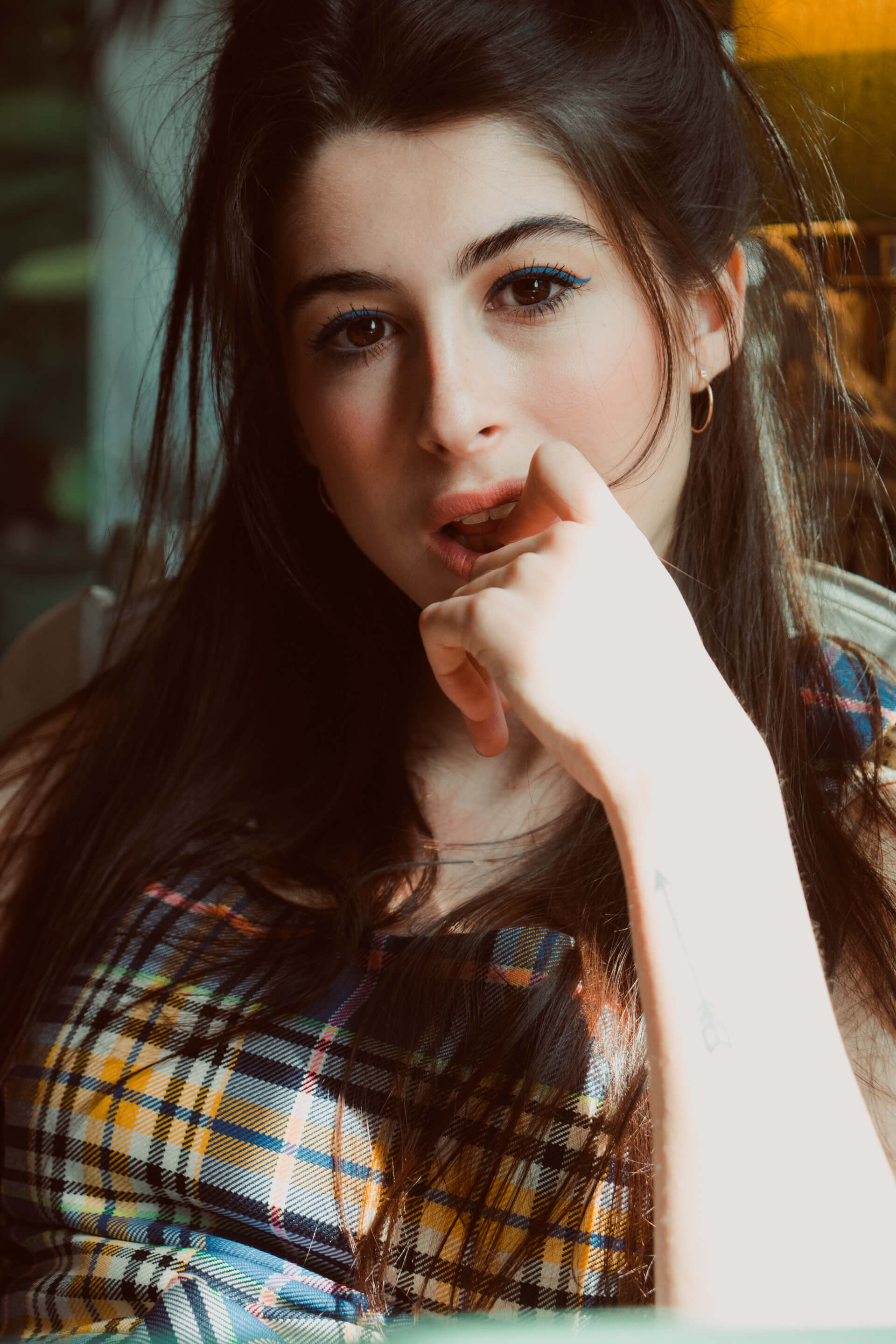
“It was beautiful for the relationships I’ve made, in the first place with Carlotta Antonelli.”

This film talks about a very important subject with great irony, and to see such irony in these times is not granted. It is an actual message for our generations, to understand that we must open our minds, go further, never stopping in our little neighborhood that we believe to be our world. We should open our eyes for once, shall we?
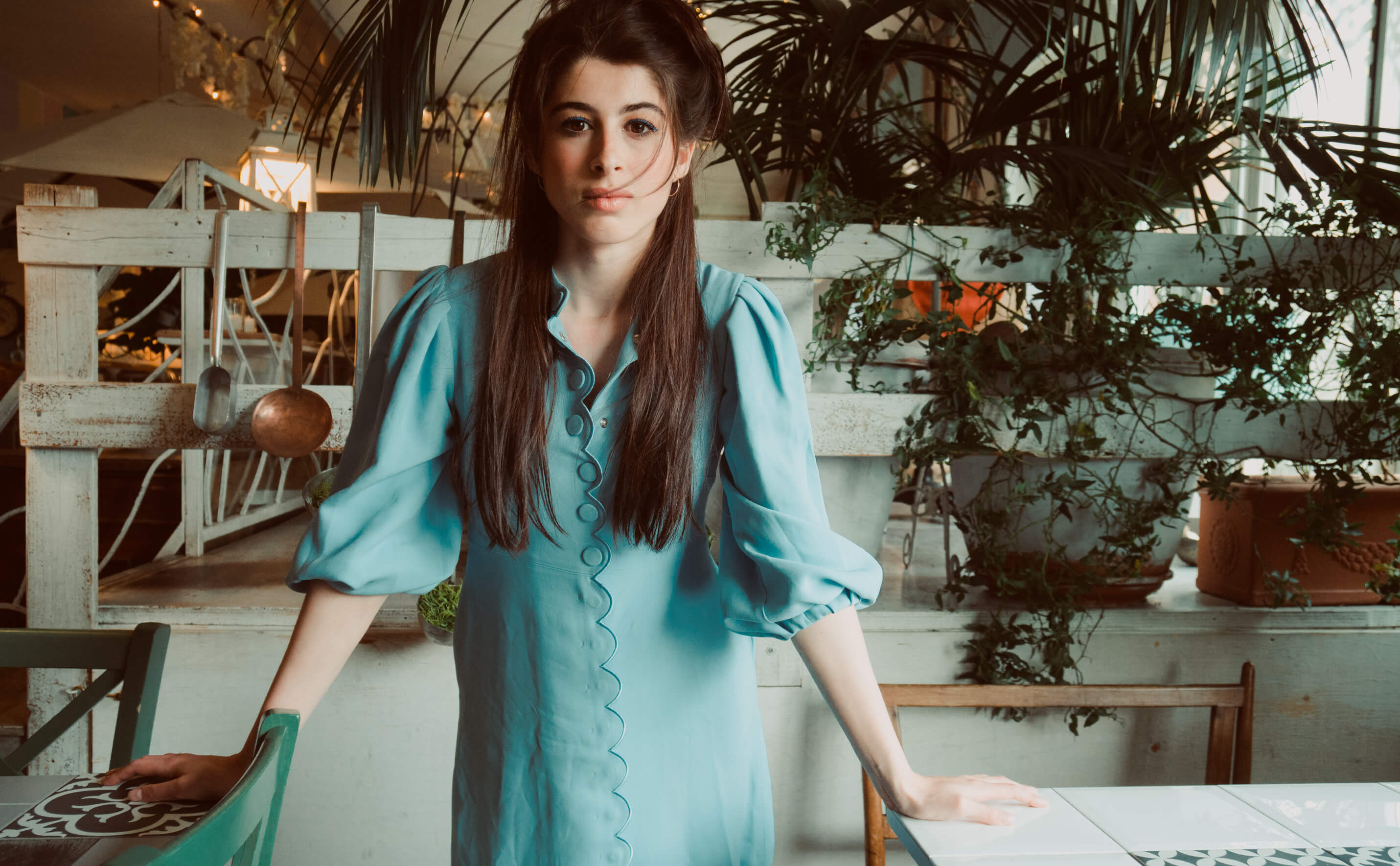
Theatre, movies, and TV series: how have these three realities influenced your personal and professional growth?
__________
I went to a film academy and, as a child, I saw way more movies than plays. Then, one morning, I woke up and said, “I want to try to enter the Theatre Academy.” I was 17, I had just finished the American school, and I had to decide what to do with my life. My mother then introduced me to this actress, Benedetta Boccoli, who is a great friend of hers and she said, “Do you want to teach Nina since she wants to enter the academy?”. She came to my house right away, and we spent a summer playing with theatre facts. By doing so, I realized it was what I wanted to do for real. Now I have been cast to play Lucia in “I promessi sposi alla prova” by Giovanni Testori, with the direction of Andree Ruth Shammah. It was beautiful because it was actual theater with current themes and not the classic story.
On stage, there is this teacher who teaches young people to live through the teachings of “The Betrothed.” Slowly, they identify themselves so much with the characters that the actress who I play, which I called Francesca, became Lucia, so it was about going in and out of character. At the end of the play, I was not tired because of the hard work, but because every night I felt different emotions, and it was a great growth just as a person. Then debuting at la Pergola theatre in Florence at 20 years old was a great emotion, I kept shaking behind the scenes, but when I entered the stage, I became icy, as it always happens to me. I am happy because it is beautiful how this director trusted me and chose me at 20 years old for this important role and how I trusted her as well, there was a good exchange.

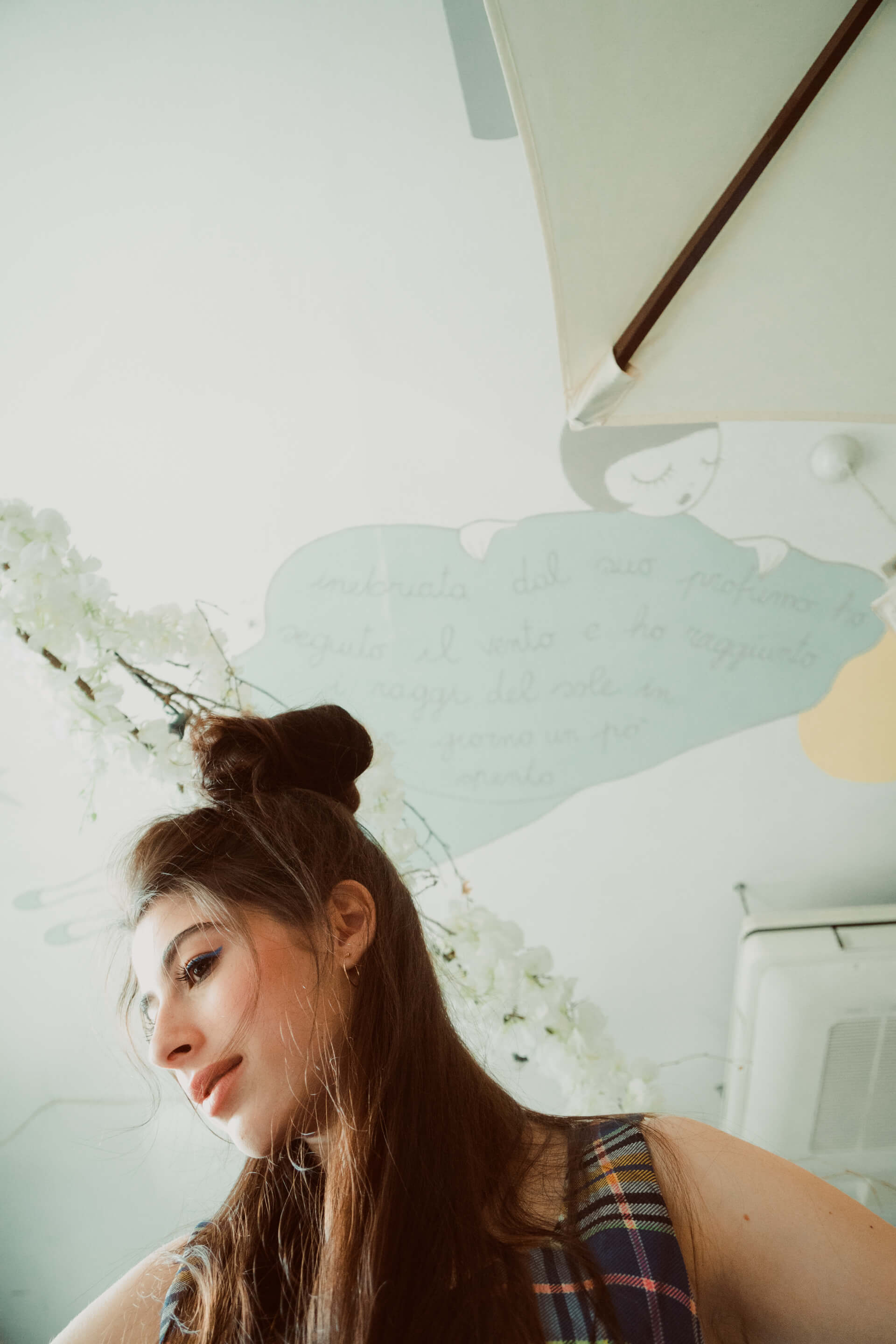
“At the end of the play, I was not tired because of the hard work, but because every night I felt different emotions, and it was a great growth just as a person.”
If you could choose one, what’s your favorite play?
__________
I love Tennessee Williams, “A Streetcar Named Desire” and also “The Blues” story: it is a collection of 3 works including “Forbidden,” which brings to the scene a 14-years-old child walking on the rails. She is a young prostitute who lives to reincarnate the memory of her sister, who died of tuberculosis: it is a scene that hurts, and it makes me cry for how strong it is. Another work that I really like, and not because my name is Nina, is “The Seagull” by Chekhov.
Speaking about movies, what was your favorite when you were a child, and what’s your favorite now?
__________
I do not remember well, but right now, I am hungry for knowledge because I think it is fundamental for this job. I’m watching everything again, a few days ago with my friends we went from “Fargo” by the Coen Brothers to the second episode of “New Monsters,” where Alberto Sordi plays an aristocratic who helps a pedestrian, and then he brings him back to where he found him. You have to see to act, some giants must be seen and known, especially for those who want to do this work. You can’t not see a movie with Monica Vitti for example, or “I knew her well” by Pietrangeli with Stefania Sandrelli.
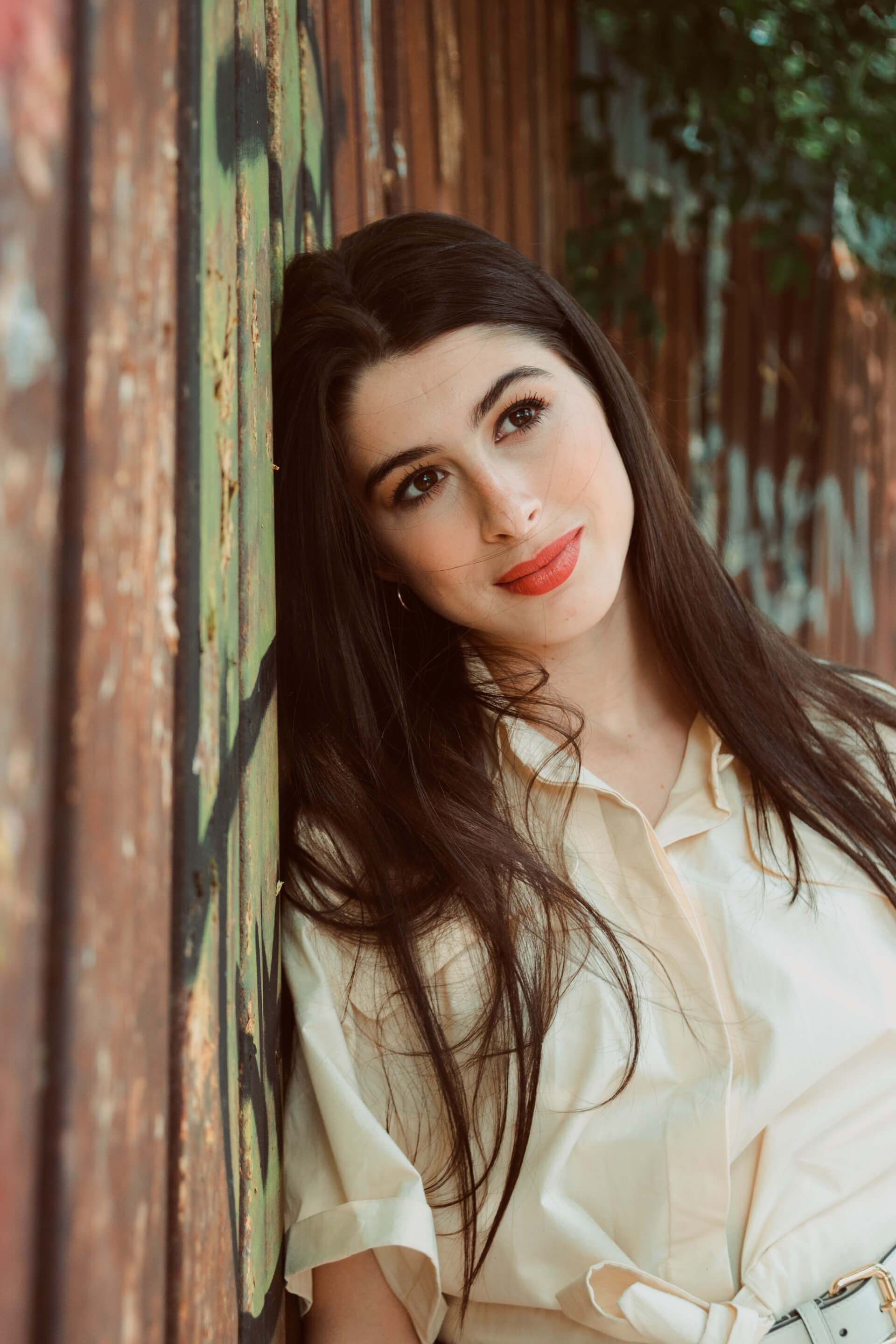

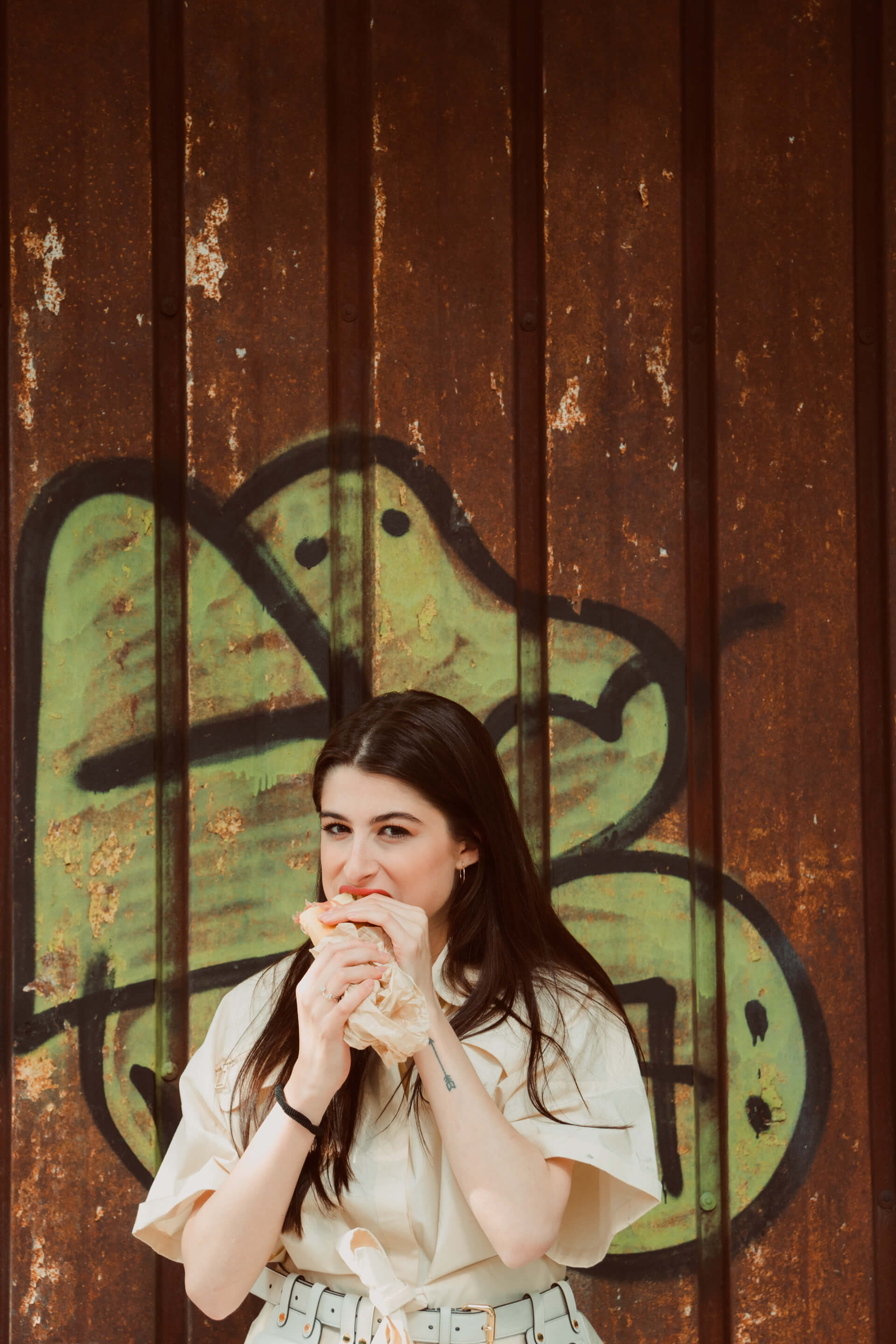
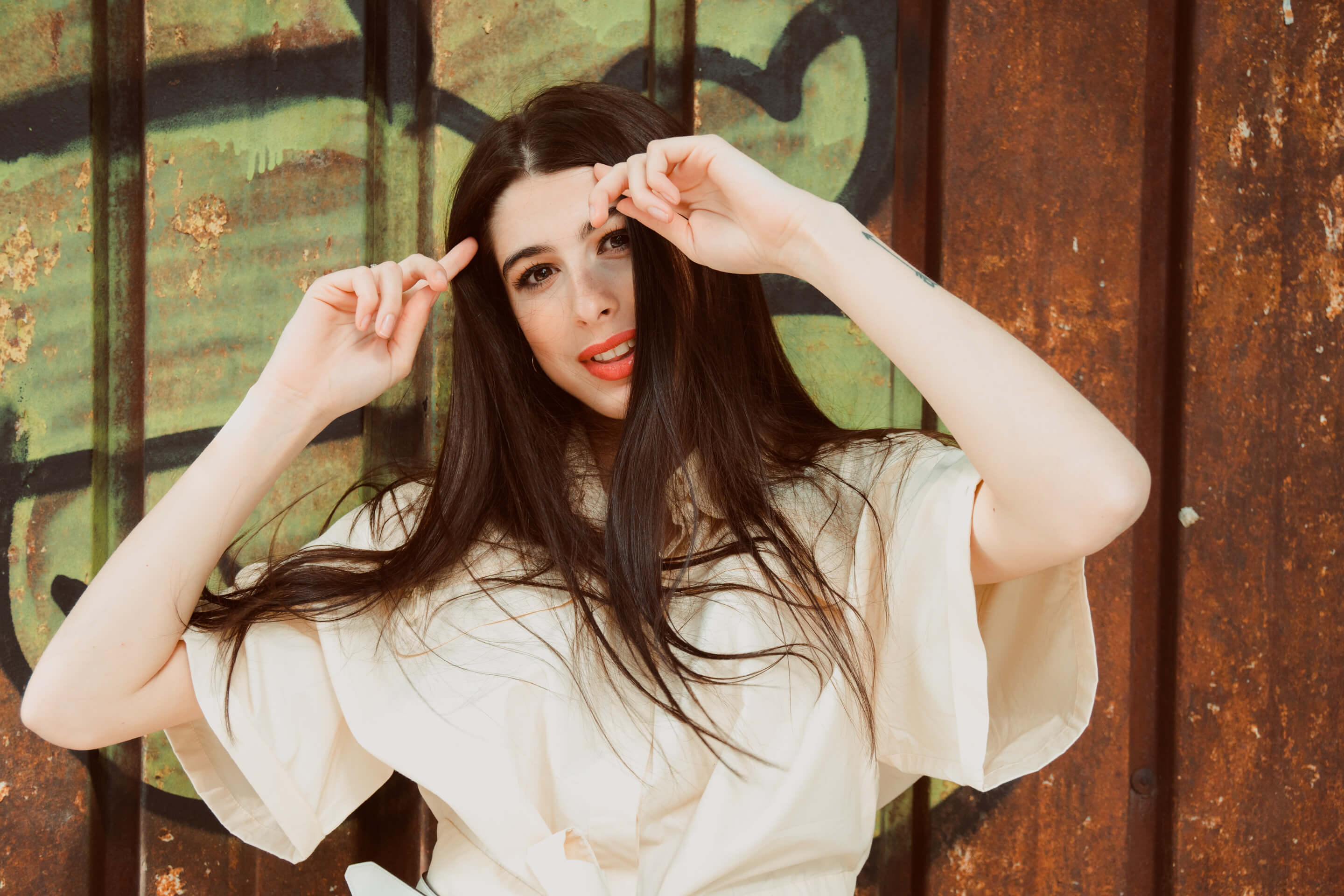
Your epic-fail on stage.
__________
I have a problem: if I start to laugh I can’t stop anymore, so if you make me laugh on stage I’m not able to act [laughs]. One day, on the stage of “I promessi sposi alla prova,” an actress was about to enter the scene, but she felt ill and she couldn’t do it. I then looked at the boy who was playing Renzo and we said her line together, but we said a line that didn’t exist because we both thought we remembered it, but we didn’t. Soon after there was the dramatic scene of the boat where I had to sit, while Renzo and Agnese are arranging the surprise marriage, but Lucia doesn’t want to do it. So, while they are speaking, Renzo looks at me, he sees that I am a little sad, and he says, “Lucia, why don’t you laugh, too?” and I was laughing so hard.
Another epic fail was during an opening night, during the scene of the kidnapping of Lucia. The stage was bare: there was only this red curtain that Don Rodrigo had to bring until the end while I, from behind the curtain, had to move it as if I were kidnapped. I got stuck with my feet and fell on the other side. I made a fool of myself, the audience understood perfectly what had happened, but luckily soon after I exited the scene, and I had a few minutes to recover. But even if you have made a fool of yourself you can not stop, and this is the beauty of theatre, the direct contact with the audience. You can’t have a fever the day of the first night:
you have to go on stage anyway.
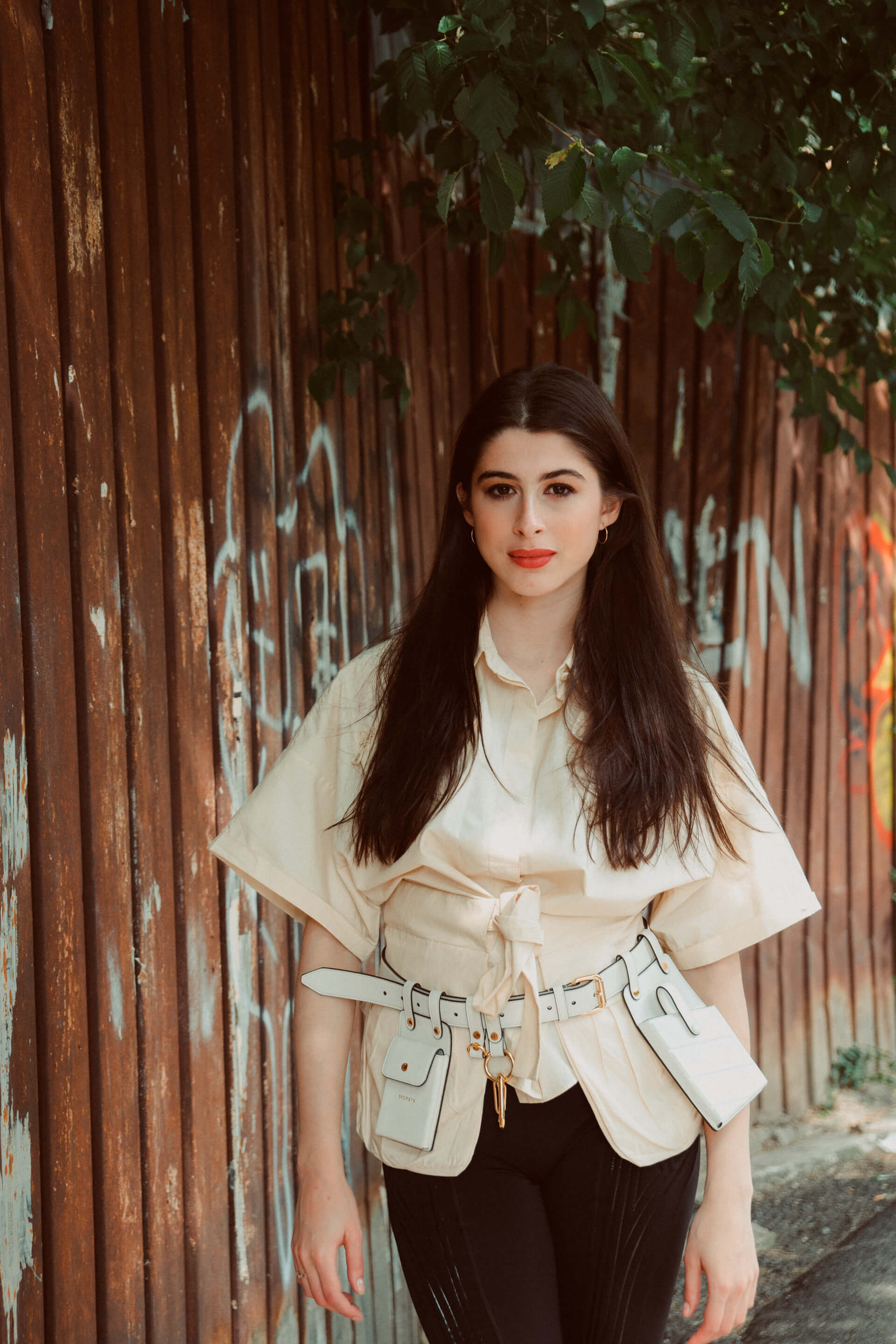
“But even if you have made a fool of yourself you can not stop, and this is the beauty of theatre, the direct contact with the audience.”
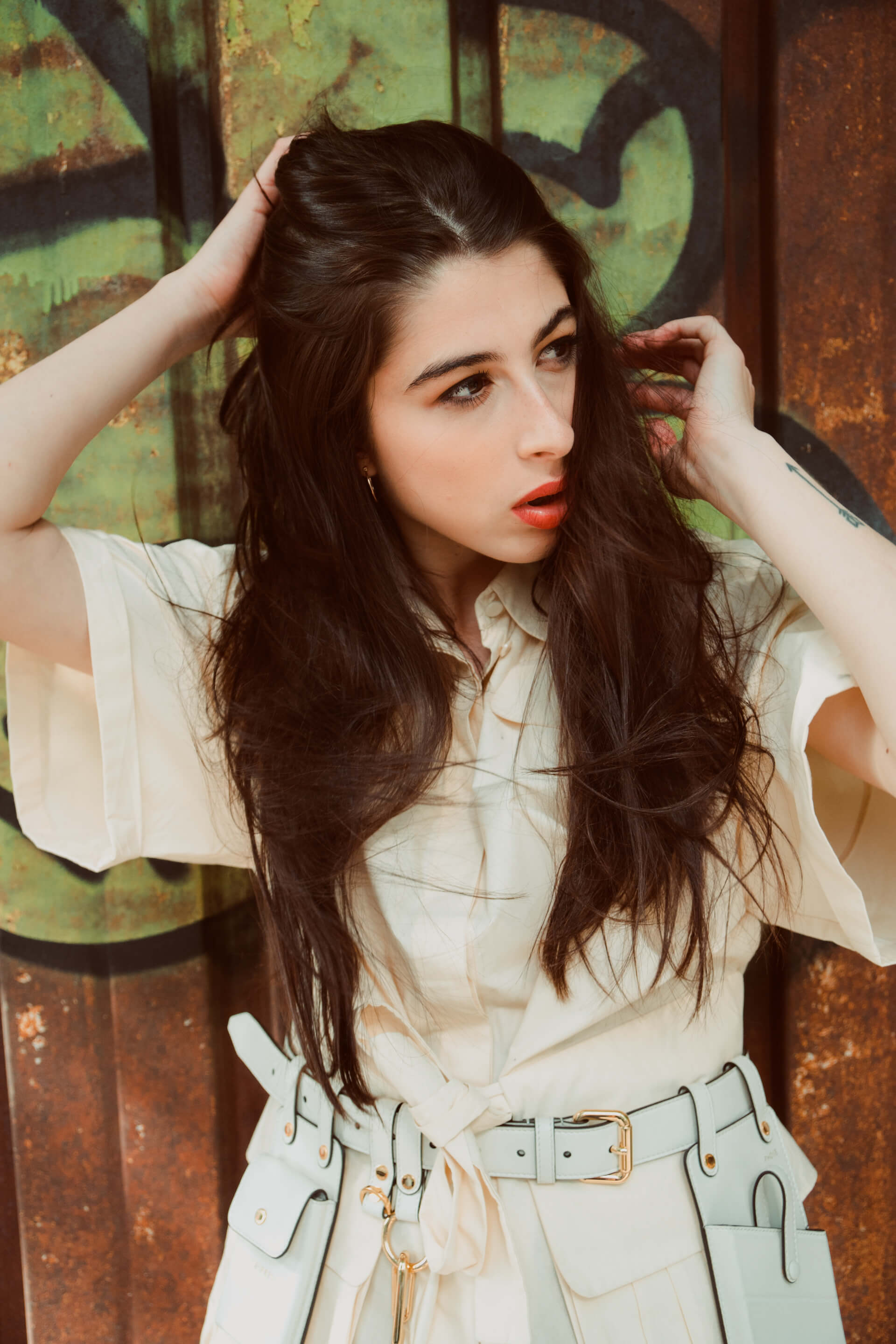
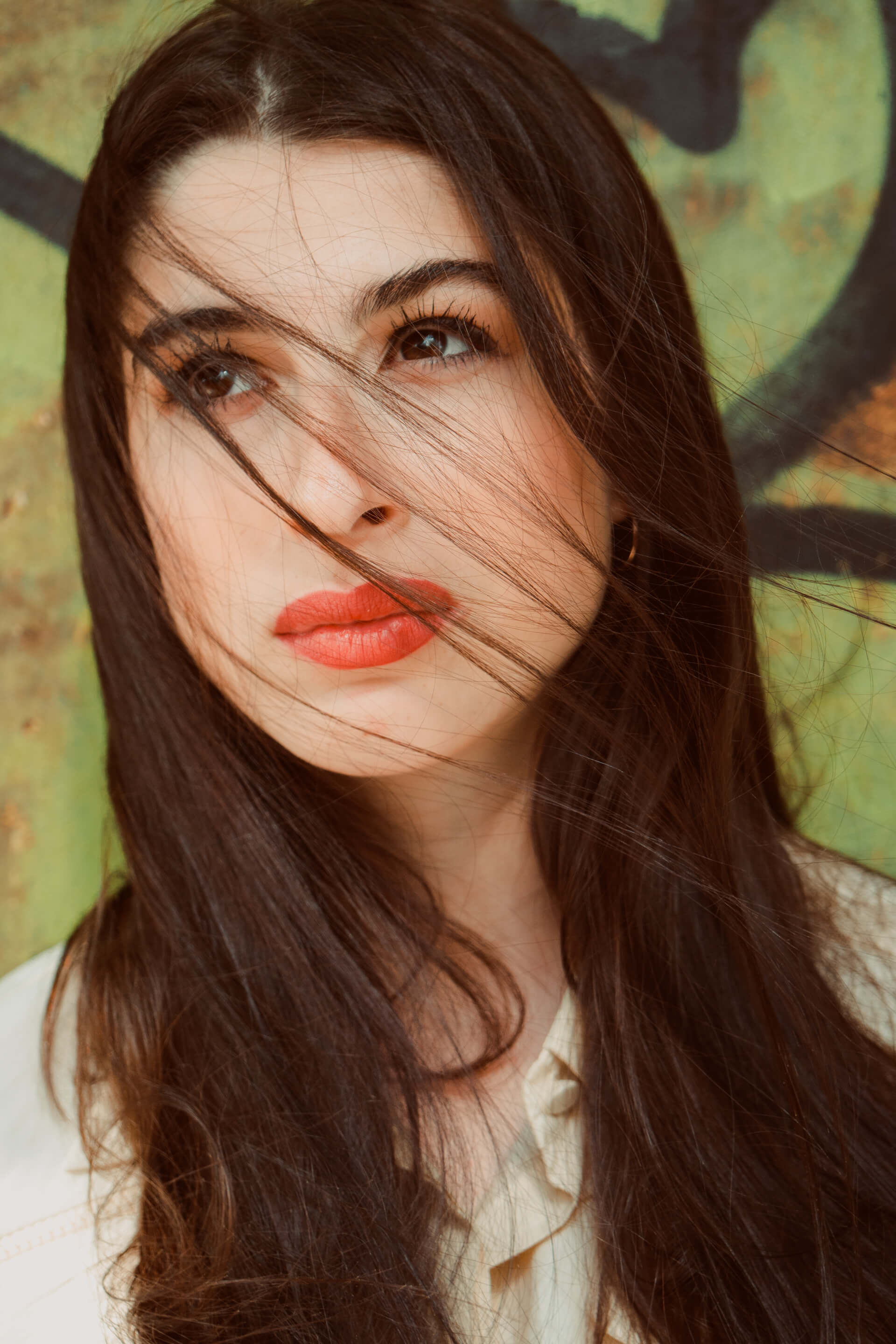
A character you would love to play?
__________
Adriana from “I knew her well” by Pietrangeli, a film that is an indictment of the Italian cinema world. Adriana is played by Stefania Sandrelli, and she is a lonely woman waiting for her big chance to become a movie star. But she is disappointed, and all her dreams are broken. Even if 50 years have passed, it is still a modern movie. Then the character of Eliza Doolittle from “Pygmalion” by George Bernard Shaw, or the role of Melodie in “Whatever Works” by Woody Allen. As far as theatre is concerned, I would say Nina from “The Seagull.”
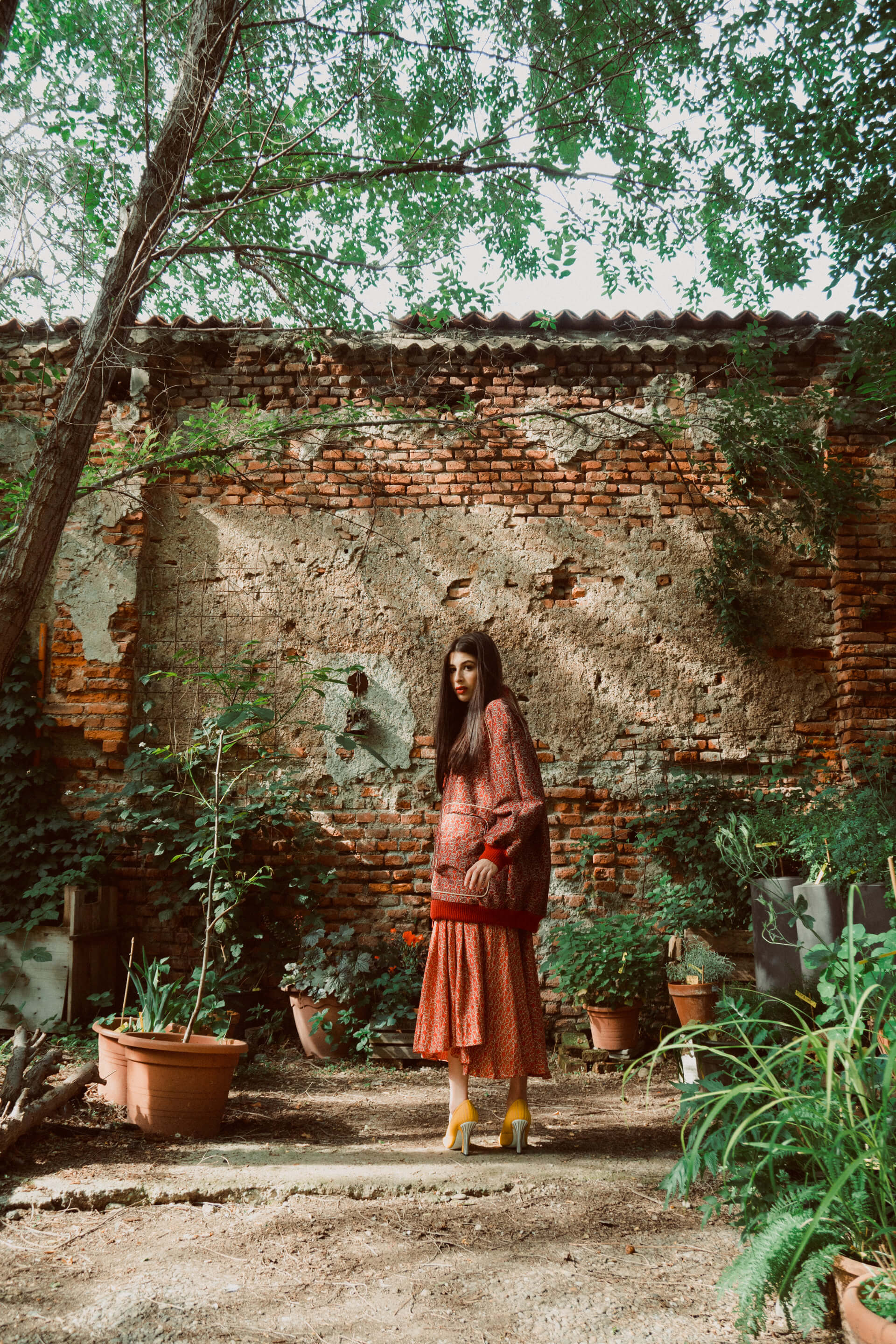
What are your future projects?
__________
I’m shooting the second season of “Baby,” while next year we will be back with “I promessi sposi alla prova.” We start it all over again from the Franco Parenti theatre in Milan, where the show was staged for the first time 30 years ago with Franco Parenti himself.


What is acting for you?
__________
It means to let yourself go. You must do it, you must not have blocks and you have to live every emotion. The first thing they taught me is that what tricks you is judgment, so you don’t have to judge yourself or others. It’s so cool, one day you’re on a dramatic set and the day after, instead, you are filming a comedy. It’s a very difficult job because you are your own tool, you have to work with yourself and to know yourself to do this job. For example, if one day a disgrace happens in your life, with this job you can turn it into the thing that makes you winning an audition:
if you know yourself, you can turn the things that happen in your life into your strength.

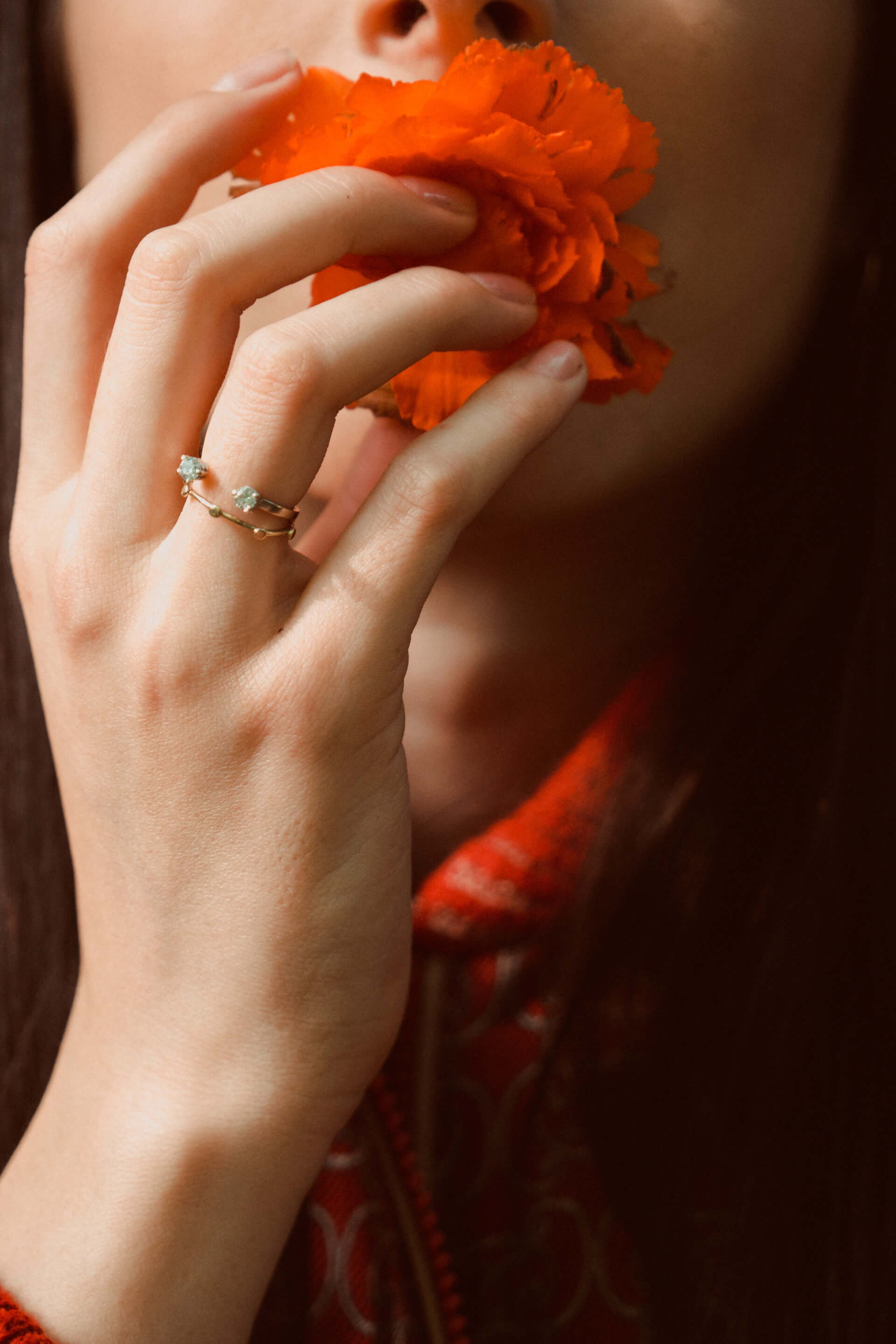


Follow Nina Pons.
Photos by Johnny Carrano.
Makeup by Fabrizia Forni.
Location Capra e Cavoli.
Thanks to Factor4pr.
LOOK 1
Abito Vivetta
LOOK 2
Abito Vivetta
LOOK 3
Total Look Fendi
LOOK 4
Total Look Fendi

